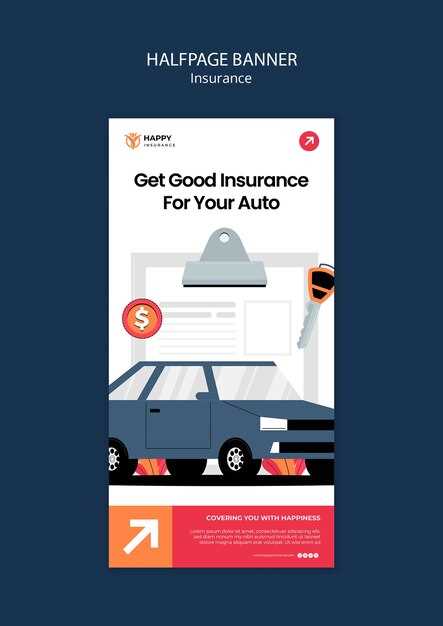
When it comes to purchasing a vehicle, many buyers are faced with the decision of whether to consider a salvage title car. A salvage title indicates that the vehicle has been deemed a total loss by an insurance company, typically due to an accident, flooding, or other significant damage. While these vehicles can be attractive due to their lower prices, potential buyers often wonder about financing options available for such cars, particularly through traditional banks.
Obtaining an auto loan for a salvage title vehicle can be challenging. Most banks and credit unions view these cars as high-risk investments due to their history and perceived value. Consequently, many financial institutions are reluctant to offer financing for these types of vehicles, often leading buyers to seek alternative lending options. Understanding the criteria that banks use to evaluate salvage title vehicles is crucial for potential buyers who require financing.
It’s essential to acknowledge that while some banks may provide financing for salvage title vehicles under specific conditions, many will require the buyer to have a higher credit score or a substantial down payment. Factors such as the extent of the vehicle’s damage, the quality of repairs, and the current market value may also influence a bank’s decision. As a result, buyers interested in financing a salvage title vehicle should be prepared for a more stringent lending process and explore all available options.
Understanding the Risks and Benefits of Financing Salvage Title Cars

Financing salvage title vehicles can be a pragmatic choice for some buyers, but it comes with a unique set of risks and benefits that need to be carefully evaluated. A salvage title indicates that the vehicle has been previously damaged and deemed a total loss by an insurance company, which can affect everything from resale value to insurance options.
Benefits
One of the primary advantages of financing a salvage title car is the cost savings. These vehicles are often significantly cheaper than their clean title counterparts, providing an opportunity to obtain a reliable auto at a fraction of the price. Additionally, for those who are mechanically inclined, a salvage title car can be restored to good condition, leading to further value appreciation. Financing options may still be available, allowing buyers to spread the cost over time, making it easier to manage expenditures.
Risks
However, financing salvage title vehicles is not without its challenges. Lenders are typically more cautious when dealing with these cars, which may lead to higher interest rates or stricter loan terms. Furthermore, the resale value of a salvage title car is inherently lower, which could lead to financial loss if the vehicle must be sold in the future. Another significant risk includes the potential for hidden damage; repairs may have been insufficient or not documented, leading to reliability issues down the road.
In summary, while financing a salvage title vehicle can present considerable savings and opportunity, it requires thorough research and an understanding of the associated risks. Prospective buyers should weigh these factors carefully before making a decision.
Key Criteria Banks Use to Evaluate Salvage Title Auto Loans
When assessing salvage title auto loans, banks apply specific criteria to determine the viability and risk associated with such financing. Understanding these criteria can help potential borrowers navigate the process more effectively.
1. Vehicle Condition
One of the primary factors is the overall condition of the salvage vehicle. Banks typically require a thorough inspection and documentation of repairs. A well-maintained vehicle with proper restoration may be favored over one with unresolved issues, influencing loan approval rates.
2. Value Assessment
The current market value of the salvage title vehicle is critical. Banks often use professional appraisal services to establish a fair value. This value will determine the loan amount and the borrower’s capacity to repay, as well as influence collateral assessment.
3. Repair Documentation
Documentation that proves the vehicle has been repaired to meet safety and operational standards is essential. Banks will look for receipts, inspection reports, and certifications to ensure that the vehicle is roadworthy, which affects both loan terms and conditions.
4. Borrower’s Credit History
The creditworthiness of the borrower plays a significant role in the evaluation process. A strong credit score may lead to better loan terms, even for salvage title vehicles, while a poor credit history may result in higher interest rates or outright denial of the loan.
5. Insurance Considerations
Many banks require that salvage title vehicles have comprehensive insurance coverage. The availability of insurance can influence the decision to approve a loan, as it protects the lender’s investment in case of future accidents or damages.
6. Loan-to-Value Ratio
The loan-to-value (LTV) ratio is another crucial factor. Banks assess how much they are willing to lend compared to the car’s appraised value. A lower LTV ratio indicates less risk for the bank, which could improve the likelihood of obtaining a loan.
7. State Regulations
Lastly, state regulations regarding salvage title vehicles can impact financing options. Some states have stricter guidelines than others, affecting what information banks must consider when evaluating a salvage title auto loan.
By understanding these key criteria, borrowers can better prepare themselves for the financing process and increase their chances of securing a loan for a salvage title vehicle.
Alternatives to Traditional Bank Financing for Salvage Title Vehicles

When it comes to purchasing a salvage title vehicle, traditional bank financing may not be an option due to the perceived risk associated with such vehicles. However, there are several alternatives that buyers can explore to secure financing for their auto purchase.
- Credit Unions: Many credit unions offer more flexible lending options compared to traditional banks. They may be more willing to finance salvage title vehicles, especially if the borrower has a strong relationship with the institution.
- Private Lenders: Private lending options include individuals or companies that specialize in providing loans for salvage title vehicles. These lenders may have fewer restrictions and can offer customized financing solutions.
- Peer-to-Peer Lending: Online platforms that facilitate peer-to-peer lending allow borrowers to connect directly with investors. This option may provide favorable terms for those looking to finance salvage vehicles.
- Personal Loans: Personal loans can be obtained from banks, credit unions, or online lenders. These loans do not typically require collateral, making them a viable option for financing an auto with a salvage title.
- Seller Financing: Some sellers of salvage title vehicles may offer financing directly to buyers. This arrangement can be negotiated based on the buyer’s ability to make payments over time.
- Title Loan Companies: Title loans use the vehicle itself as collateral. While this option can provide quick cash, it often comes with high interest rates and risks of repossession if payments are missed.
- Insurance Company Loans: In certain cases, insurance companies may offer loans for vehicles with a salvage title, especially if they previously insured the vehicle before it was declared salvage.
Each of these financing alternatives presents unique advantages and potential drawbacks. It is crucial for buyers to compare options, consider interest rates, and understand the terms associated with financing a salvage title vehicle.
